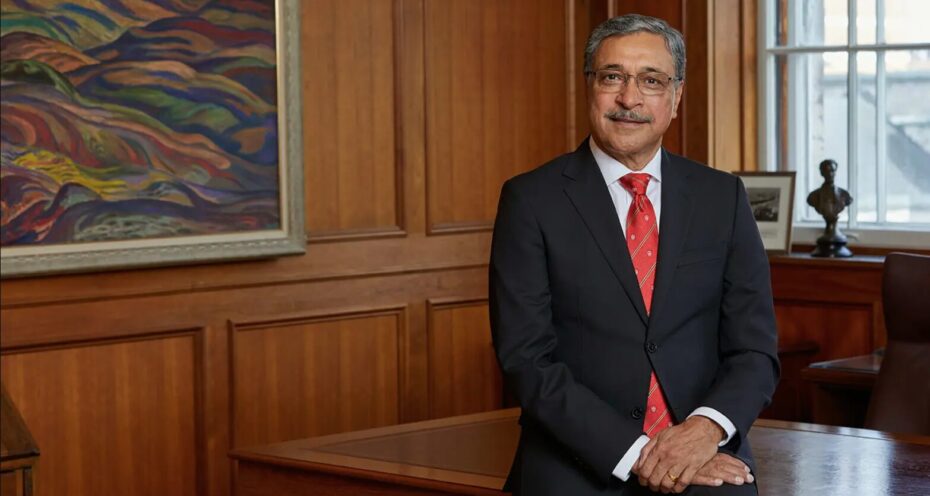
My Convocation speech is interrupted by a shout from the back of the audience: “Shame on you Saini! Listen to your students!”
Similar shouts have been heard at campus protests across the country since October 7, 2023, becoming louder with the appearance of encampments. They seek to coerce universities into taking a side, through institutional decisions and actions, in a geopolitical conflict half a world away, something well outside our missions.
Every time this call has been directed my way, I’ve privately wondered, “which students?” The handful who shouts loudest and most often, almost always hiding behind a mask? Or those who report being targeted by intimidatory tactics on campus, made fearful to the point of avoiding classes? Or those hurting deeply and looking for empathy and help? Or those who remind me this conflict has two sides and that the distinction between perpetrator and victim has been a matter of debate? Or the silent majority whose whispers about simply wanting to pursue their education are drowned out by incessant declamations?
I have the duty and privilege to work with and listen to all my students – 40,000 of them, with wonderfully and dramatically diverse identities, nationalities, beliefs, and political views.
On the crisis in the Middle East, I hear students express conflicting perspectives on a war that has devastated Israelis and Palestinians alike and has profound and intensely personal impacts for many members of our community. University leaders have a duty to recognize and demonstrate care in the face of the real and complex emotions evoked by this crisis. Carrying out this duty is a far more challenging task than the coercive forces seeking to bully universities into one-sided actions would have the world believe. Caving in to such pressures would not only have universities stray far beyond their academic mission, but also undermine it.
As a child of parents who survived gratuitous bloodletting during India’s Partition and having myself lived through three wars, I am fully aware of the devastation, divisions, and sectarianism violent conflicts unleash. While I long for Palestinians and Israelis to find enduring peace, this can only be achieved through a resolution that is just for both parties, and responsibility for reaching it resides first and foremost with them. It is not for universities to force a solution on one party or both, even if they could.
The role and value of universities – indeed, their duty – is to educate, ideate, and serve as forums for constructive dialogue. This role seems obvious, yet it is exceptionally complicated to execute. This is especially so in a moment like the present, where nuanced argument is far too often overtaken by absolutist ideologies that sequester themselves within echo chambers. When advocates demand universities align themselves uniquely with their rhetoric or take actions that essentially aim to decimate or denigrate another party, such a role becomes a non-starter. Too often, such advocates assert that their demands are unquestionably valid and must be met, failing which they will take any and all means to impose their will.
This is what universities are up against. It is daunting and dangerous, including and especially for society as a whole.
Our work, then, lies in creating opportunities and issuing invitations to resist polarized rhetoric, and instead lean into the grey, messy zone between “truths” that some perceive as categorical. It is here that learning, ideas, inquiry, and discovery become possible. Inviting students to step into this space is admittedly not easy at this time. But I have hope. In recent weeks, I have met with multiple groups of McGill students. They hold diverse identities and opposing views about the conflict. Throughout these conversations, students expressed anguish about the calamity abroad and related fears about the rise in hate at home. They also articulated their need for a university setting that sees their humanity, engages with empathy, acts with principle, and provides a climate where they can thrive academically and be proud of who they are.
These expectations are eminently reasonable. Their transversality demonstrates the possibility for exchange and discourse across differences. In this way, the university becomes a model for civil society.
So, of course I agree with the call: “Listen to your students!”
All my students.
Deep Saini is President and Vice-Chancellor of McGill University.
This opinion-editorial was originally published in The Gazette on August 8, 2024.
